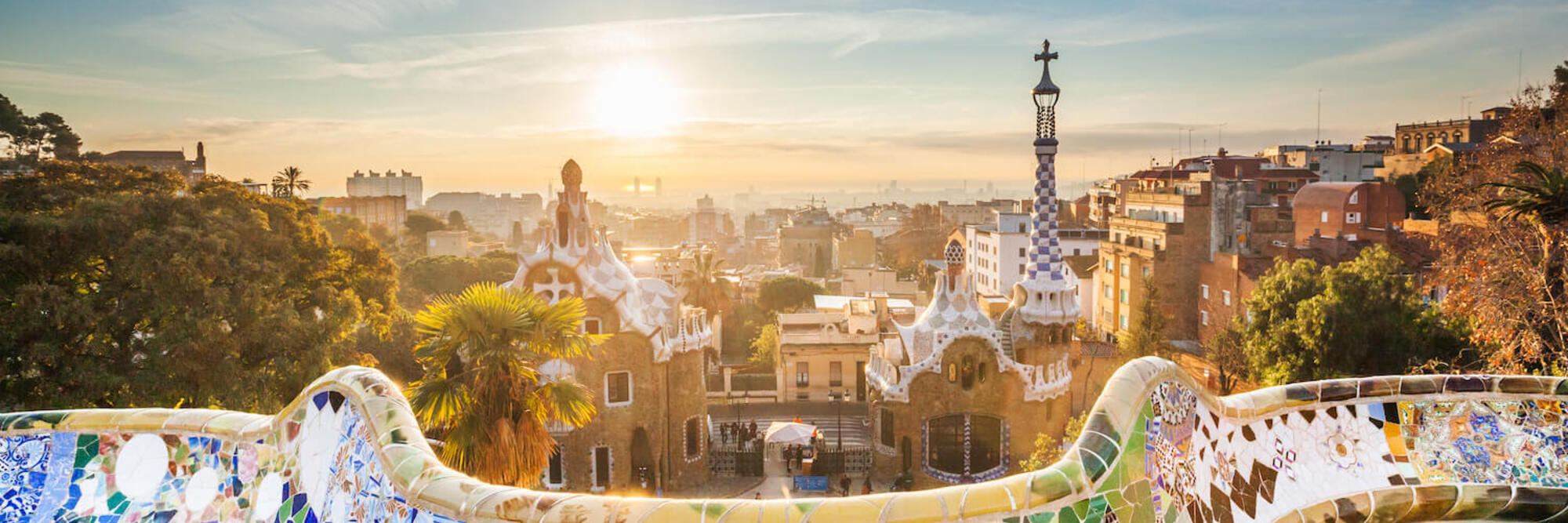Patty is an American expat who moved to Spain 10 years ago. While she misses her family and friends back in America, she now considers Barcelona home. She believes that the key to truly enjoying expat life in Barcelona is keeping an open mind and embracing the Spanish culture. Patty loves to write about Catalan traditions, celebrations and food on her blog – Patty in Spain.
Read more about Barcelona in the Expat Arrivals Barcelona City Guide or read more expat experiences in Spain.
About Patty
Q: Where are you originally from?
A: Los Angeles, California
Q: Where are you living now?
A: Barcelona, Sant Cugat del Valles
Q: How long have you lived in Barcelona?
A: I’ve been in Barcelona for 10 years now.
Q: Did you move with a spouse/ children?
A: I moved to Barcelona on my own for my first two years.
Q: Why did you move; what do you do?
A: I first arrived in Barcelona as a single gal and later met my husband during my second year of being here.
About Barcelona
Q: What do you enjoy most about Barcelona? How’s the quality of life?
A: It’s more than a host city; it is now my home. I love the constant holiday celebrations, traditions and the quality of life, although the cost of living here is very high. Eating out with friends is always a pleasant and entertaining experience.
Q: Any negatives? What do you miss most about home?
A: I dislike being inside an airplane for so many hours. I miss barbecuing, free parking spaces, and friendly customer service. I miss being able to visit my family on the weekends. I miss being able to buy steak sauce and vitamins and viewing movies in English – though we do have cinemas that show movies in the original version.
Q: Is Barcelona safe?
A: I feel safer in Barcelona than I do in Los Angeles. As with any city, always take normal everyday precautions to detract potential theft.
Q: How would you rate the public transport in Barcelona? Do you need to own a car, or is public transport sufficient for getting around? What are the different options?
A: Barcelona has a great public transportation system. You can get around the city by bus, metro or cycling. You only need a car if you live outside the city like I do, but even then I can use the train to get into the city.
Q: How would you rate the healthcare in Spain?
A: Healthcare in Spain is experiencing budget cuts due to the present financial situation. If you do not speak Spanish, understanding and communicating with a physician might be a problem. Few doctors do speak a limited beginner’s level of English. Problems arise with receptionists and clerks at the clinics, who barely attempt to speak English. You can speak awful Spanish to them, and they will not take the time to clarify bureaucratic doubts in simple Spanish to you. They don’t have much patience for foreigners.
About living in Barcelona
Q: Which are the best places/suburbs to live in Barcelona as an expat?
A: Your age and cultural interests determine where you would want to live. If you are in your early 20s-30s, you’ll like Gracia or Eixample Esquerra. Avoid the Born, Raval and Gothic quarter because of the endless tourists, noise, and pickpockets. If you have a family, then living in Sarria, Sants, Eixample Dreta, and Sagrada Família are good choices. Poble Nou is too far from most workplaces located in the centre of town. If you are not a city person, you’ll prefer Esplugues de Llobregat or Sant Cugat.
Q: How do you rate the standard of accommodation in Barcelona?
A: It all depends on what you are used to.
Q: What’s the cost of living compared to home? What is cheap or expensive in particular?
A: Cost of living is high. We do pay high sales tax on items, and renting an apartment is also expensive for the amount of space you get. We do have low-cost supermarkets like Mercadona and Lidl, which make a big difference if you have children.
Q: What are the locals like; do you mix mainly with other expats?
A: Barcelonans are not very friendly at first and can seem very standoffish. This is especially true for Catalans who have not lived abroad. However, once you do gain their trust, their friendship is very genuine. I mix with other expats because of my workplace.
Q: Was it easy meeting people in Barcelona and making friends?
A: Making friends was easy at work, but outside the workplace, it is a different story. You either join local international clubs or meet locals by joining language exchange meetings for free.
About working in Spain
Q: Did you have a problem getting a work visa/permit for Spain?
A: Any international company will take care of your visa. Illegal hiring is decreasing because of repercussions to employers, but it is still practised. Getting a visa is a time-consuming process, but it gets accomplished. It all depends on human resources and how effective they are at doing their job.
Q: What’s the economic climate like in Spain? is there plenty of work?
A: We presently have a high unemployment rate in the city. Jobs do not abound as before. It is not as easy anymore as it was five years ago. Many international families are returning to their country of origin.
Q: How does the work culture differ from home?
A: The work culture is very intense because of two-hour lunches. Work days can be long. My husband gets home after nine o’clock at night, but he works as a lawyer.
Q: Did a relocation company help you with your move?
A: No. I left everything in California to marry my Spanish husband.
Family and children in Barcelona
Q: Did your spouse or partner have problems adjusting to their new home?
A: It took me a while to readjust to Barcelona after I had come home to California for a year. I missed the friendliness of the people and my family. After three years of living in Barcelona, I was ready for a quiet suburb like Sant Cugat, where I am very happy living. The noise pollution and traffic in Barcelona can become very tiring.
Q: What are the schools like in Barcelona? Any particular suggestions?
A: I am only familiar with international schools. I highly recommend the American School of Barcelona and The Benjamin Franklin School. They do follow the American curriculum and offer the IB program for families with adolescents. Plus, the environment is very friendly and family-orientated. There are other schools like Agora, Europa, and British schools, but like any school requiring uniforms, they tend to be a bit more rigorous in character.
And finally…
Q: Is there any other advice you like to offer new expat arrivals to Barcelona?
A: Join clubs and have an open mind towards your host city. I believe difficulty settling into life here in Barcelona stems mainly from having reservations about the new culture. You have to be positive about living in Barcelona or anywhere else in Spain. You have to anticipate that things function differently from home. Expect accommodation to be different in Spain from the United States. Take it from someone who grew up in a house with an enormous backyard and big bedrooms. Space is limited in Spain, and you live in apartment buildings with small balconies. Arm yourself with patience when things do not go as planned. More importantly, enjoy the Spanish culture and know that you will have low moments. The first stage is euphoria, then sadness, then anger, then a release of all these emotions for one of feeling settled as one more member of Spanish society. Good luck!
~ Interviewed August 2012



